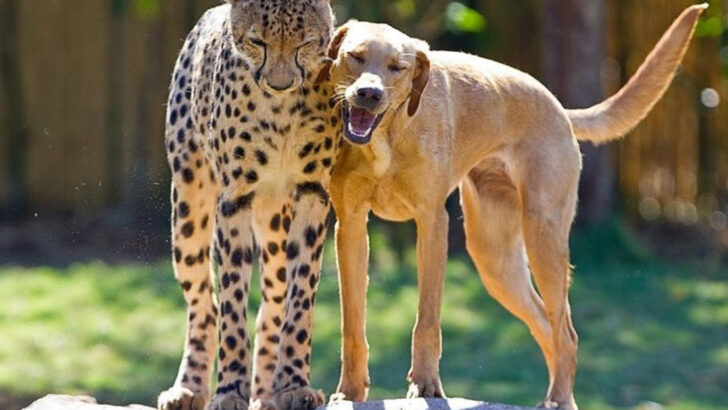Cheetahs get nervous—and dogs help them chill out.
It sounds strange at first: the world’s fastest land animal paired with a laid-back pup. But this odd couple works. In fact, it works brilliantly.
Cheetahs in captivity often struggle with stress and anxiety. They’re shy, sensitive, and easily overwhelmed by new environments, noises, and people.
Enter the dog.
With their calm confidence and friendly energy, dogs act as emotional anchors for their feline friends. They don’t just coexist—they bond, play, and teach cheetahs how to relax in a world that feels too loud.
It’s one of the most heartwarming and surprising success stories in animal care.
Here are 10 fascinating facts about why some of the sleekest cats in zoos are choosing floppy-eared, tail-wagging best friends.
Cheetahs’ Shy Nature
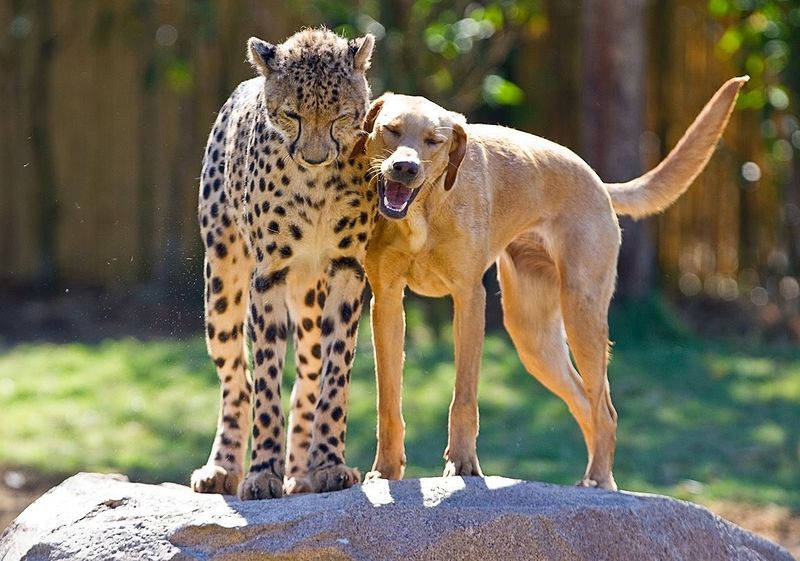
Cheetahs, despite their majestic appearance, can be surprisingly shy creatures. In the wild, they rely on their speed to avoid threats, but in captivity, their timid nature often surfaces.
This shyness can lead to stress, impacting their health and behavior. Here’s where support dogs step in. With their calm and adaptable demeanor, dogs provide a sense of security for the cheetahs.
Did you know? This relationship helps cheetahs become more confident, improving their social interactions with humans and other animals.
Dogs as Social Models
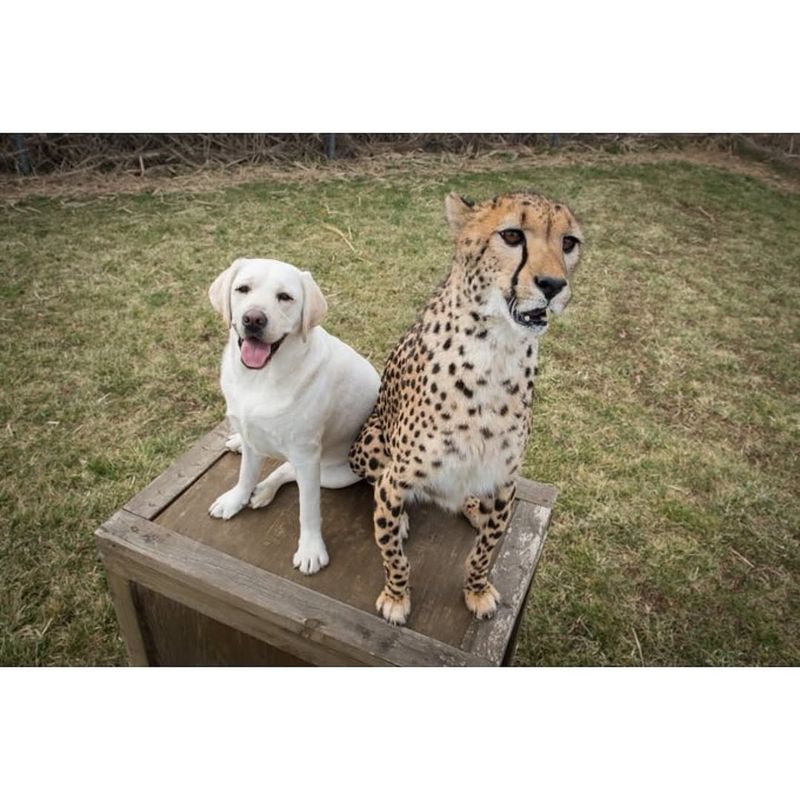
In zoos, dogs serve as social models for cheetahs, aiding them in learning how to interact in a captive environment. Cheetahs can be naturally anxious, and having a dog as a companion can provide a calming influence.
The dogs’ friendly and approachable disposition encourages cheetahs to overcome their fears, fostering a more relaxed atmosphere.
This companionship is not only heartwarming but essential for the cheetahs’ mental well-being. It’s a unique animal friendship that captivates visitors and teaches valuable lessons about interspecies harmony.
Companionship and Comfort
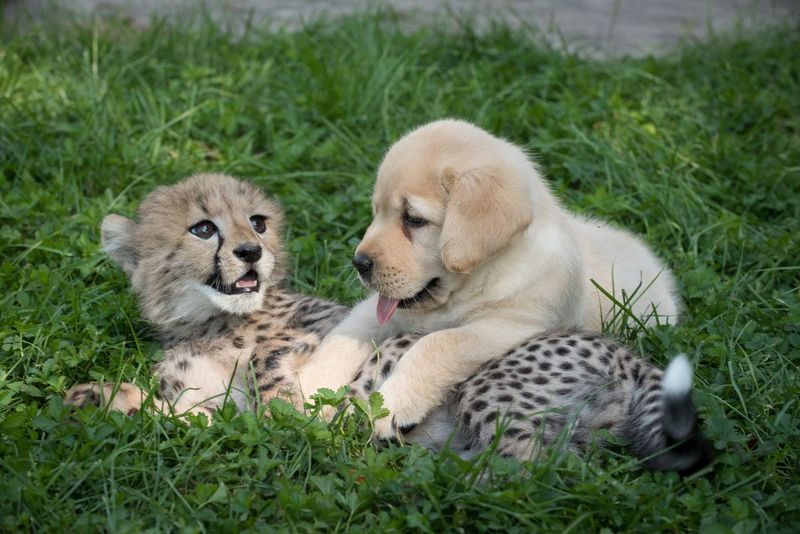
Nothing soothes a cheetah’s nerves quite like the comforting presence of a canine friend. This companionship plays a crucial role in reducing anxiety levels in cheetahs.
Dogs, with their loyal and comforting nature, offer emotional support that is hard to replicate. This unusual bond helps cheetahs remain calm during medical procedures or public interactions.
Interestingly, the cheetah-dog duo is not only effective but also delightful to observe, showcasing the power of friendship in overcoming challenges. This model is now being adopted by more zoos worldwide.
Training and Enrichment

Training cheetahs in captivity is a delicate task, requiring patience and unique approaches. Dogs play an integral role in this process by acting as training partners for the cheetahs.
Their presence not only motivates cheetahs but also makes learning fun and engaging. Dogs demonstrate obedience and responsiveness, setting a positive example for the cheetahs to follow.
This partnership enhances the cheetahs’ cognitive skills and provides essential mental stimulation, contributing to their overall enrichment and quality of life in zoos.
Stress Reduction in Captivity
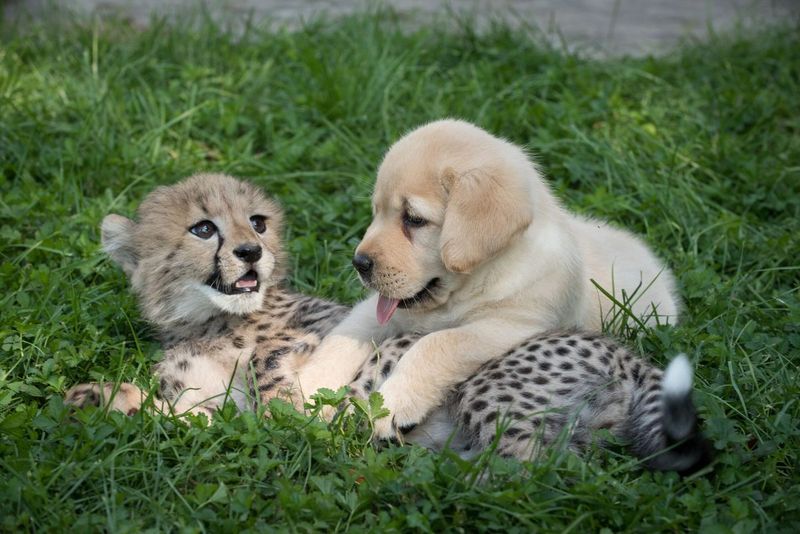
Life in captivity can be stressful for cheetahs. The confinement, despite being necessary for conservation, often leads to anxiety and stress-related behaviors.
Enter the support dog, whose calming presence helps alleviate these tensions. Dogs provide a sense of normalcy and stability, crucial for the well-being of captive cheetahs.
This companionship is a testament to the innovative ways zoos are enhancing animal welfare and providing better living conditions for their residents, making the cheetah-dog relationship a pioneering model in animal care.
Improving Public Perception
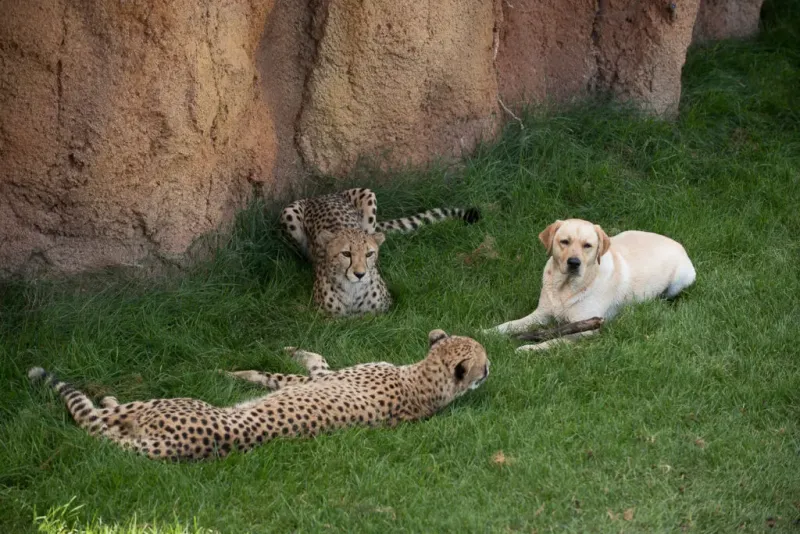
The cheetah-dog partnership does more than just support the animals; it also enhances public perception of zoos. The heartwarming sight of these different species interacting captivates visitors and promotes positive attitudes toward conservation.
This relationship highlights the creative approaches zoos use to address animal welfare, educating the public on the complexities of caring for captive wildlife.
As visitors witness the mutual affection and understanding between cheetahs and dogs, they become more supportive of conservation efforts, contributing to the broader mission of wildlife preservation.
Dogs as Emotional Anchors
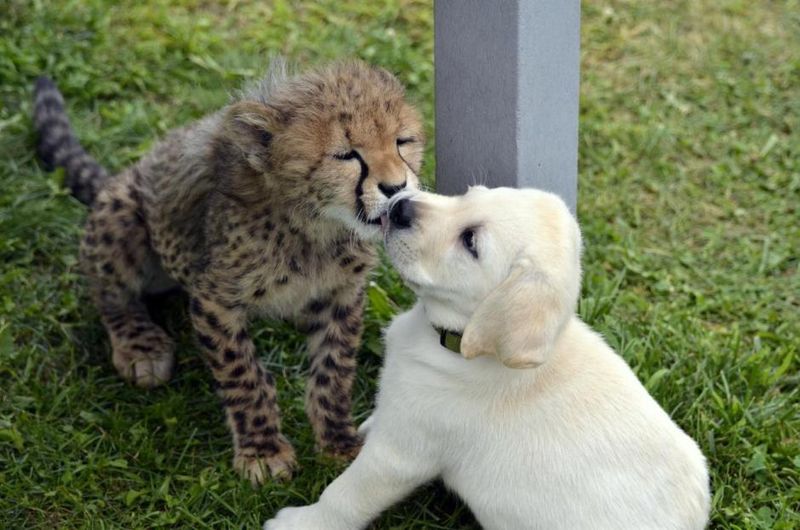
In the world of animal care, dogs serve as emotional anchors for cheetahs, providing much-needed stability and reassurance. This support is especially crucial during times of transition, such as moving to a new enclosure or adapting to changes in their environment.
The presence of a dog offers familiarity and comfort, helping cheetahs adjust more smoothly to these changes.
This emotional support system is a vital component of the cheetahs’ well-being and highlights the innovative practices employed by zoos to ensure the happiness and health of their animals.
Role of Zookeepers
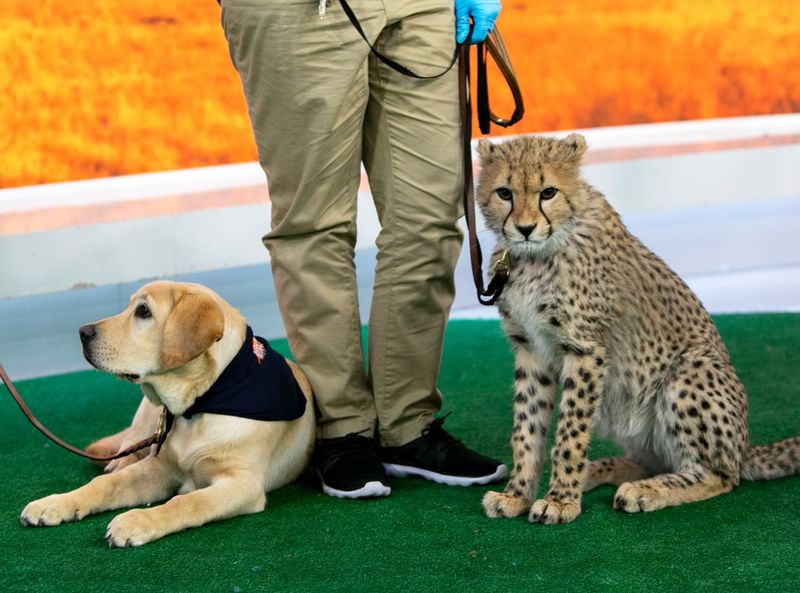
Zookeepers play a pivotal role in fostering the bond between cheetahs and dogs. Their expertise and dedication ensure that both animals benefit from this unique companionship.
By carefully selecting compatible pairs and monitoring their interactions, zookeepers create an environment where the animals thrive.
The zookeepers’ involvement is essential, as they provide the guidance and support needed to maintain this harmonious relationship, reflecting their commitment to innovative animal care and welfare practices.
Cheetah’s Companion Dogs
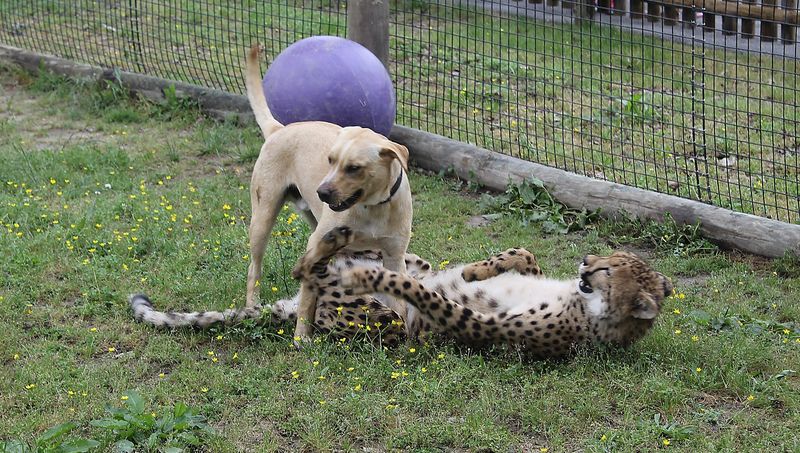
The selection of companion dogs for cheetahs is a thoughtful process. Typically, breeds known for their gentle and calm demeanor, like Labradors and Golden Retrievers, are chosen.
These dogs are not only friendly but incredibly patient, qualities that make them perfect companions for cheetahs. They help in creating a tranquil atmosphere, essential for the cheetahs’ mental health.
This thoughtful pairing underscores the care and consideration zoos invest in their animal residents, ensuring that both cheetahs and dogs lead fulfilling lives together.
Unique Learning Relationships
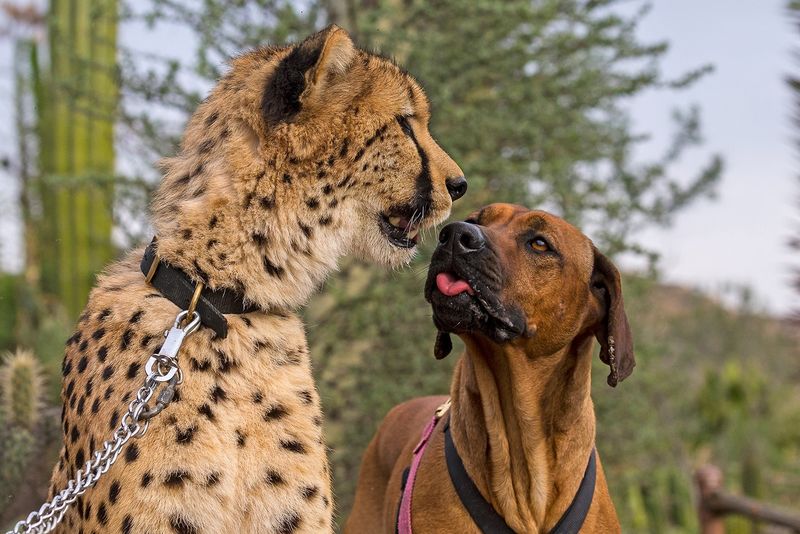
Cheetahs learn a great deal from their canine companions, establishing a unique learning relationship in captivity. Dogs demonstrate behaviors that cheetahs can mimic, such as play and social interaction.
This learning extends beyond basic behaviors, influencing the cheetahs’ overall development. Dogs teach patience, trust, and confidence, essential traits for thriving in captivity.
The cheetah-dog relationship is a remarkable example of interspecies learning, showcasing how animals can benefit greatly from each other’s company when given the opportunity.

